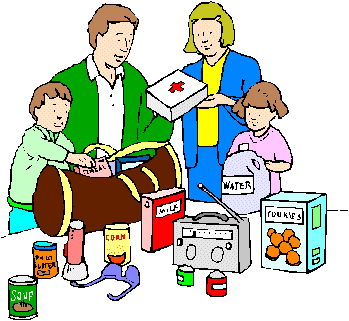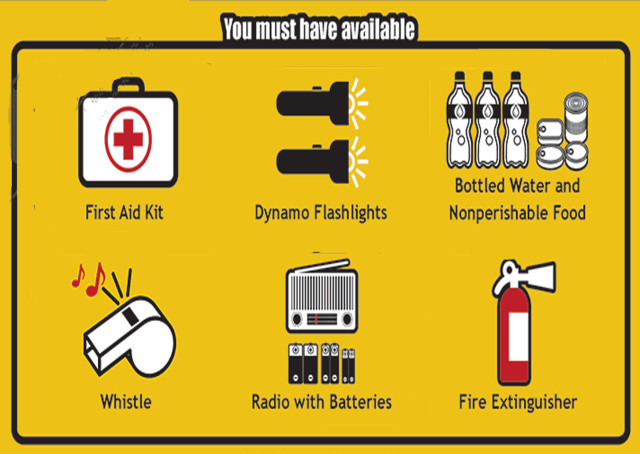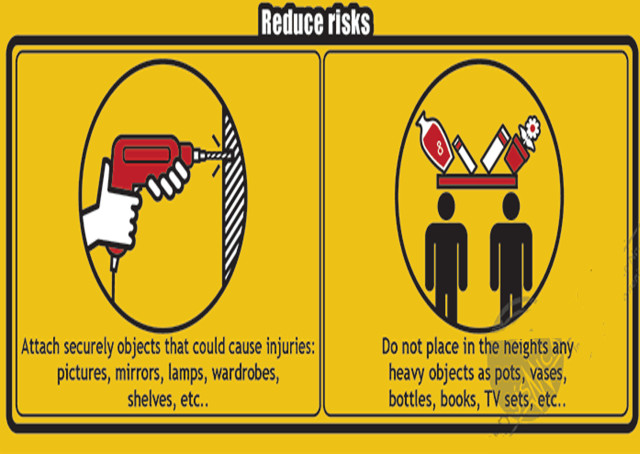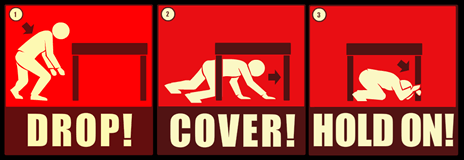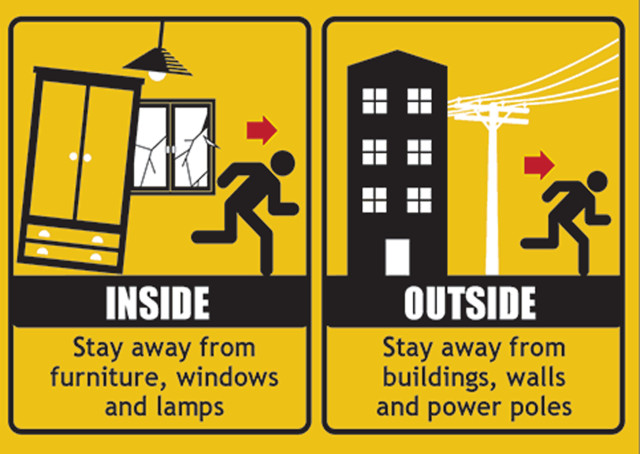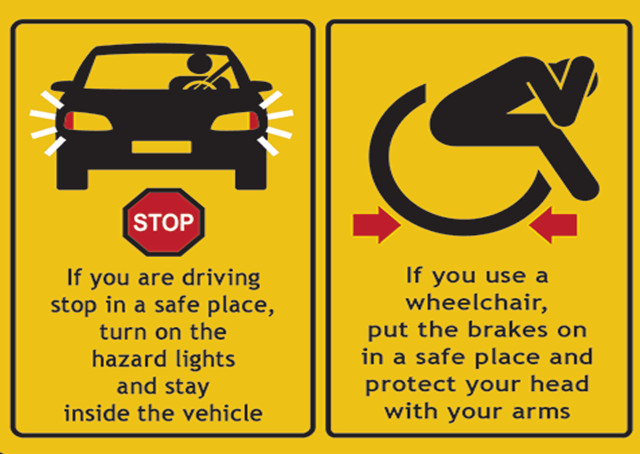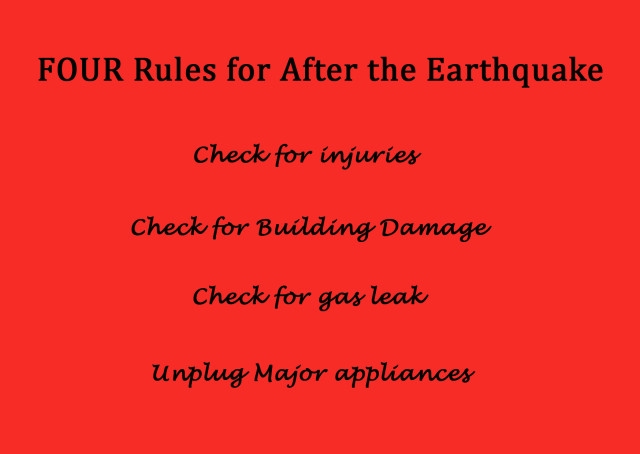A little knowledge and a few precautionary measures can enormously increase your chances of surviving an earthquake – or any other type of hazard. The keys are education and preparing in advance. The earthquake safety tips below will not make you an expert. However, they could make a life-saving difference if you find yourself in an earthquake situation. Invest in your personal safety by studying below.
Before the Earthquake:
1. Learn how to survive during the ground motion. This is described in the “During the Earthquake” section below. The earthquake safety tips there will prepare you for the fast action needed – most earthquakes are over in seconds so knowing what to do instinctively is very important.
2. Teach all members of your family about earthquake safety. This includes: 1) the actions you should take when an earthquake occurs, 2) the safe places in a room such as under a strong desk, along interior walls, and 3) places to avoid such as near windows, large mirrors, hanging objects, heavy furniture and fireplaces.
3. Stock up on emergency supplies. These include: battery operated radio (and extra batteries), flashlights (and extra batteries), first aid kit, bottled water, two weeks food and medical supplies, blankets, cooking fuel, tools needed to turn off your gas, water and electric utilities.
4. Arrange your home for safety: Store heavy objects on lower shelves and store breakable objects in cabinets with latched doors. Don’t hang heavy mirrors or pictures above where people frequently sit or sleep.
5. Anchor heavy appliances and furniture such as water heaters, refrigerators and bookcases.
6. Store flammable liquids away from potential ignition sources such as water heaters, stoves and furnaces.
During the Earthquake:
1. If you are indoors, stay there. Quickly move to a safe location in the room such as under a strong desk, a strong table, or along an interior wall. The goal is to protect you from falling objects and be located near the structural strong points of the room. Avoid taking cover near windows, large mirrors, hanging objects, heavy furniture, heavy appliances or fireplaces.
2. If you are cooking, turn off the stove and take cover.
3. If you are outdoors, move to an open area where falling objects are unlikely to strike you. Move away from buildings, power lines and trees.
4. If you are driving, slow down smoothly and stop on the side of the road. Avoid stopping on or under bridges and overpasses, or under power lines, trees and large signs. Stay in your car.
After the Earthquake:
1. Check for injuries; attend to injuries if needed, help ensure the safety of people around you.
2. Check for damage. If your building is badly damaged you should leave it until it has been inspected by a safety professional.
3. If you smell or hear a gas leak, get everyone outside and open windows and doors. If you can do it safely, turn off the gas at the meter. Report the leak to the Gas Company and fire department. Do not use any electrical appliances because a tiny spark could ignite the gas.
4. If the power is out, unplug major appliances to prevent possible damage when the power is turned back on. If you see sparks, frayed wires, or smell hot insulation turn off electricity at the main fuse box or breaker. If you will have to step in water to turn off the electricity you should call a professional to turn it off for you.
Graphics Designed By Nishita Karun



























